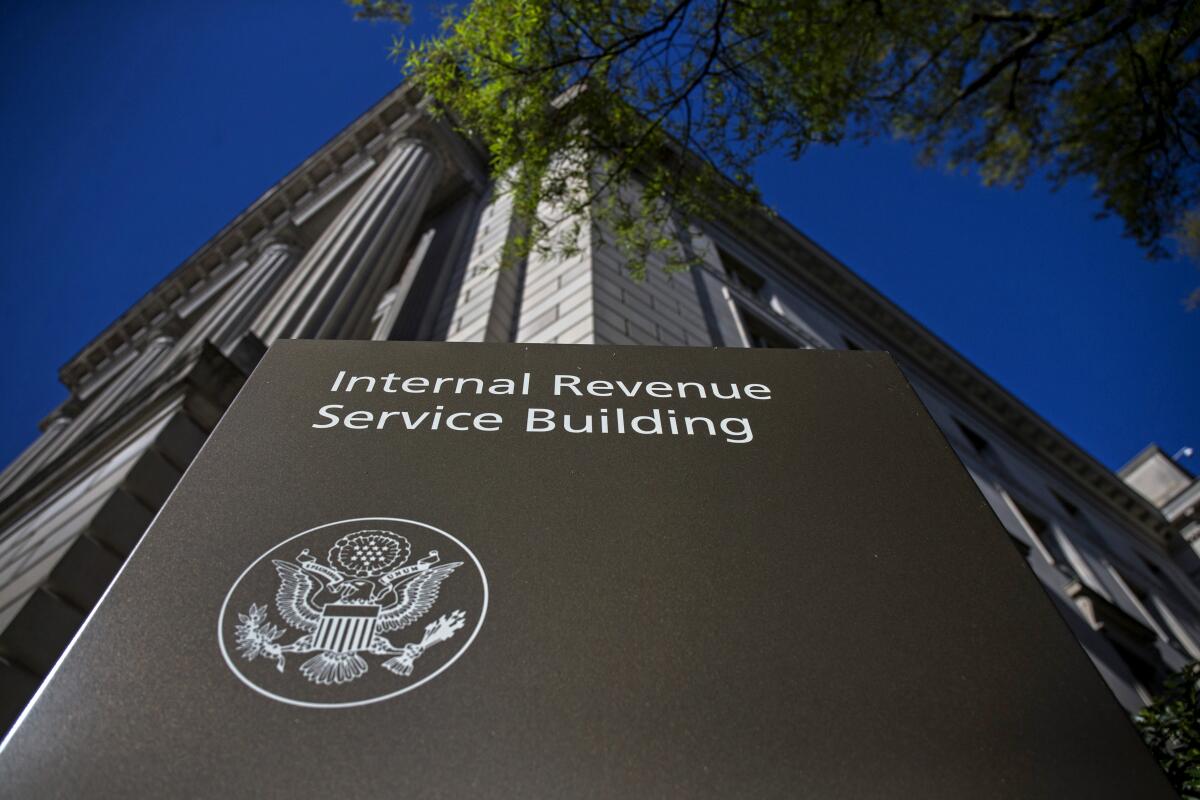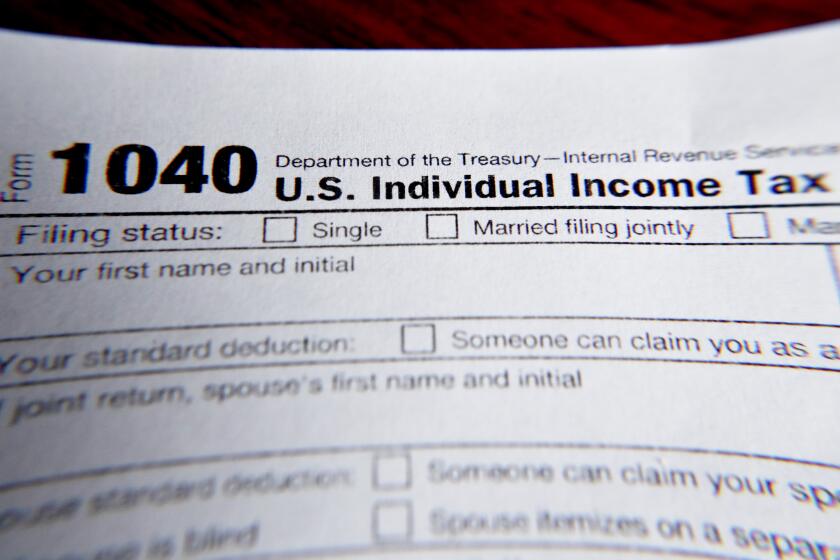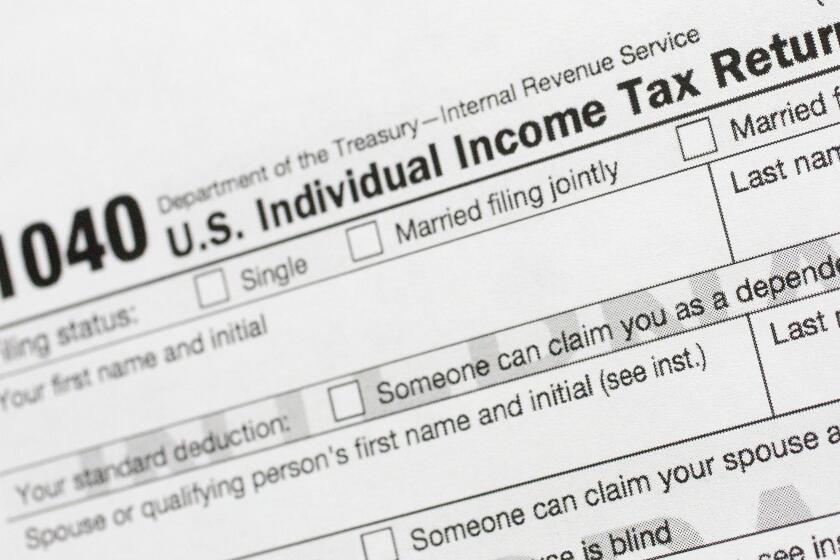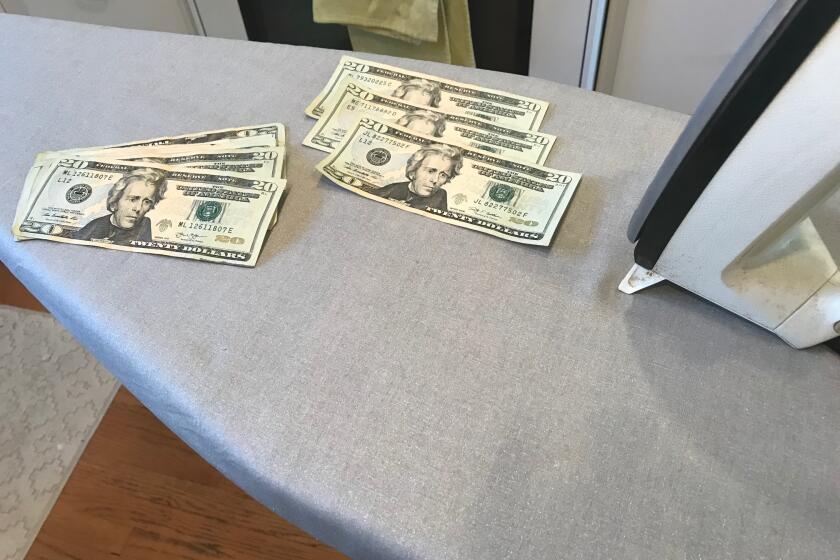Don’t file an amended return after the stimulus tax break. The IRS is begging you

- Share via
Dear Liz: You might want to inform your readers that they do not need to file an amended return if they filed before Congress passed its most recent stimulus plan, which excludes the first $10,200 of unemployment benefits. The IRS will automatically recalculate their taxes and refund the taxes paid on that amount of benefits.
Answer: In fact, the IRS is begging people not to file amended returns. (An exception, the IRS has said, is for those who the tax reduction would make newly eligible for the earned income tax credit or other tax breaks for lower income people.) The agency is still processing a backlog of returns and correspondence while issuing a third wave of stimulus payments and gearing up to send monthly child credit payments to millions of families.
You may need patience, however. The IRS has promised to refund any taxes paid on the first $10,200 of unemployment benefits earned last year, but has said the money will go out “this spring and summer.”
Confused about filing taxes this year? You’re not alone. Here’s a guide to get you started.
Refreshing an old credit card
Dear Liz: I have and use three credit cards, two of which offer cash-back rewards. The third has no rewards program, so I would like to get rid of it and replace it with a new card that offers cash back or miles. But I’m afraid if I cancel this card my credit score will take a hit, especially since the card has a big chunk of my overall credit limit. What do you suggest?
Answer: You can ask the issuer for a “product change,” which allows you to swap one card for another without closing your account. Typically, your history with the old card is simply transferred to the new one, as is your credit limit.
The new card must be from the same issuer and you usually won’t qualify for any sign-up bonuses. But you won’t risk damaging your scores by closing one account and applying for another.
Research the issuer’s offerings and know which card you want before you call. This is usually a fairly routine process, but if you encounter any resistance, just mention that your other option is to cancel the card. If you’ve been a good customer, the issuer probably will want to keep your business.
A product change also can be a good idea if you want to switch from a rewards card with a high annual fee to one with a lower fee, or no fee. Any rewards you’ve already earned may not be transferable, so be sure to ask.
The California Policy Lab says a stimulus gap may be between 2.2 million Californians and payments that are owed to them. Up to $5.7 billion may be unclaimed. To get your share, you probably need to file a tax return.
Paying taxes with plastic
Dear Liz: I am selling a rental property that I have owned for several years. I know I could do a 1031 exchange, which would allow me to put off the tax bill by investing in another commercial property. But I just want out. I’ll pay the capital gains tax and invest the rest of the proceeds. I am considering paying the taxes by credit card and taking on the 3% premium to get rewards points offered through the card issuer. Is this a dumb idea, or does it have some merit?
Answer: The companies that process federal tax payments have processing fees of just under 2%, not 3%. You’ll still want to make sure you get more value from your rewards than you pay in fees, and that’s not a given. If your card offers only 1.5% cash back, for example, charging your taxes doesn’t make a lot of sense. But the math changes if you can get more than 2% in rewards, or if you could use the charge to help you meet the minimum spending requirements for a new credit card with a generous sign-up bonus.
If you do charge your taxes, you’ll obviously want to pay the balance in full before incurring any interest.
Filing taxes after a spouse’s death
Dear Liz: I am writing this email on behalf of my 88-year-old dad. He wanted to ask you this question: “My wife passed away Jan. 7, 2020. In filing my 1040 income tax for 2020, am I allowed to file as a married couple or required to file as a single person?”
Answer: Your dad can use “married filing jointly” with his deceased spouse for the year of her death, assuming he didn’t remarry in that year.
If your dad claimed one or more qualifying dependents — a child, stepchild or adopted child — he might be able to file as a qualifying widower for the following two years as long as he paid more than half the cost of maintaining his home and it was the main home of the dependent or dependents. Most people your dad’s age no longer live with their kids or claim them as dependents on their tax returns. But if he did, this could preserve the larger standard deduction and other benefits of filing jointly for another couple of years.
Emergency funds protect against much more than job loss. Also: why seller home financing doesn’t help credit scores.
Maxing out retirement benefits
Dear Liz: I turn 70 in July. Will I need to wait to start my Social Security benefits until 2022 to receive my full benefit, or can I start them in August 2021?
Answer: There’s no need to wait to claim your benefits once they max out at age 70. If you did apply late, you could get a maximum of six months of retroactive benefits but no more.
Liz Weston, certified financial planner, is a personal finance columnist for NerdWallet. Questions may be sent to her at 3940 Laurel Canyon, No. 238, Studio City, CA 91604, or by using the “Contact” form at AskLizWeston.com.
More to Read
Inside the business of entertainment
The Wide Shot brings you news, analysis and insights on everything from streaming wars to production — and what it all means for the future.
You may occasionally receive promotional content from the Los Angeles Times.













